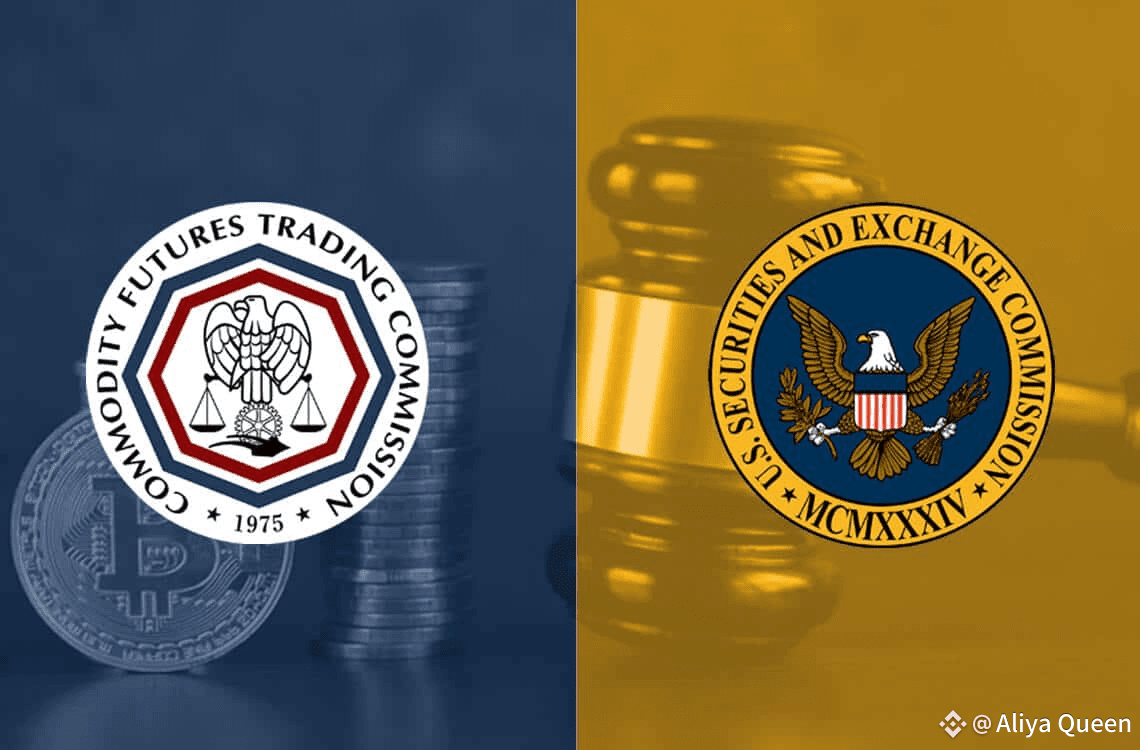In the marble halls of Washington's financial district, a quiet revolution is unfolding. With the urgency of a startup and the authority of federal law, the Commodity Futures Trading Commission is attempting something that seemed impossible just months ago: legitimizing cryptocurrency trading in America's most traditional financial institutions.
The Moment of Reckoning
Monday's announcement felt like a financial earthquake disguised as bureaucratic paperwork. Acting Chair Caroline Pham, speaking with the confidence of someone who knows history is watching, declared the CFTC "full speed ahead" on enabling immediate digital asset trading at the federal level. Her words carried the weight of decades of regulatory caution finally giving way to bold action.
"There is a clear and simple solution the CFTC can implement now," Pham proclaimed, cutting through years of regulatory maze-running with startling directness. In the typically circumspect world of federal financial oversight, such declarative language sounds almost revolutionary.
The Architecture of Change
What Pham is proposing would fundamentally alter the American financial landscape. These "spot crypto asset contracts" would transform Bitcoin, Ethereum, and other digital currencies into something resembling traditional commodity futures—complete with the regulatory protections and institutional gravitas that comes with CFTC oversight.
Imagine walking into the Chicago Mercantile Exchange and seeing Bitcoin prices displayed alongside pork bellies and natural gas. That's not some distant fantasy—it's the immediate future the CFTC is engineering through this initiative.
The mechanism is elegant in its simplicity: create futures-style contracts that mirror spot cryptocurrency prices, then trade them on CFTC-registered designated contract markets. It's like giving cryptocurrency a three-piece suit and a seat at the grown-ups' table of American finance.
Racing the Clock
The timeline reveals the administration's sense of urgency. A two-week public comment period ending August 18 represents regulatory speed that would have been unthinkable in previous administrations. This isn't the leisurely pace of traditional rulemaking—this is regulation reimagined for the digital age.
The CFTC is specifically targeting section 2(c)(2)(D) of the Commodity Exchange Act, a provision requiring retail commodity transactions with leverage, margin, or financing to occur on registered exchanges. It's bureaucratic jujitsu—using existing law to achieve revolutionary outcomes.
The Skeleton Crew's Mission
Perhaps the most remarkable aspect of this transformation is who's executing it. The CFTC is operating with just two of its five commissioners: Pham and Kristin Johnson, who herself is expected to depart before year's end. It's like trying to land a jumbo jet with half the flight crew.
The exodus began on Inauguration Day when former Chair Rostin Behnam resigned, followed by Summer Mersinger and Christy Goldsmith Romero in late May. What remains is an agency running on skeleton staffing while attempting to revolutionize American cryptocurrency regulation.
This understaffing creates a peculiar dynamic: two commissioners wielding the full authority of federal financial regulation while operating under intense time pressure and political scrutiny. Every decision carries outsized weight, every statement moves markets.
The Ghost in the Machine
Hovering over this entire enterprise is Brian Quintenz, Trump's nominee for permanent CFTC chair, who remains trapped in confirmation limbo after the White House mysteriously postponed his Senate hearing. Quintenz brings precisely the cryptocurrency expertise needed for this moment—he's currently global head of policy at Andreessen Horowitz's crypto venture arm.
His absence creates an odd situation where the CFTC is pursuing aggressively crypto-friendly policies while its crypto-savvy designated leader watches from the sidelines. It's regulatory theater with an empty director's chair.
The Interagency Ballet
None of this happens in isolation. Pham explicitly referenced coordination with "the SEC's Project Crypto," acknowledging that cryptocurrency regulation requires unprecedented collaboration between agencies that have historically operated in separate spheres.
This coordination dance addresses cryptocurrency's fundamental challenge to traditional regulatory categories. Digital assets don't respect the neat boundaries that separate commodities from securities, requiring regulators to choreograph their oversight carefully to avoid gaps or conflicts.
The Market's Electric Anticipation
Wall Street is watching with barely contained excitement. Years of regulatory uncertainty have pushed massive cryptocurrency trading volumes offshore, creating an enormous opportunity for exchanges that can successfully navigate the new American framework.
Major players like CME Group, already offering Bitcoin and Ethereum futures, could dramatically expand their cryptocurrency offerings if the CFTC's vision materializes. The prospect of legitimate spot crypto trading on regulated American exchanges could trigger a massive repatriation of trading activity and institutional investment.
The Democracy Sprint
The compressed comment period represents democracy in overdrive. Typically, such significant regulatory changes involve extensive consultation periods lasting months or years. The CFTC's two-week window forces stakeholders to respond with startup-like agility rather than traditional institutional deliberation.
This approach carries obvious risks—less time for public input, potential oversight of unintended consequences, insufficient consideration of complex interactions. But it also signals recognition that regulatory speed has become a competitive weapon in the global race for cryptocurrency leadership.
The Regulatory Tightrope
The CFTC is also seeking input on securities law implications, acknowledging the complex boundary between commodity and securities regulation in the cryptocurrency space. This careful attention to jurisdictional questions reveals an agency trying to claim territory while respecting the SEC's domain—a delicate balance that could determine the initiative's ultimate success.
The Stakes of Speed
Success could establish America as the undisputed global leader in cryptocurrency regulation, attracting the innovation and capital that have migrated to more accommodating jurisdictions. Failure could reinforce perceptions of American regulatory sclerosis, further eroding the country's competitive position in digital finance.

The Transformation Moment
What we're witnessing isn't just regulatory reform—it's the potential birth of cryptocurrency's mainstream American moment. The CFTC's initiative represents a bet that federal oversight can evolve as quickly as the technologies it governs, that traditional institutions can embrace digital disruption without losing their essential character.
As August 18 approaches, the financial world is holding its breath. Caroline Pham and her skeleton crew have opened a door that seemed permanently locked. Whether the cryptocurrency revolution walks through it depends on their ability to execute this regulatory sprint while maintaining the careful balance between innovation and oversight that has always defined effective financial regulation.
In the sterile corridors of federal bureaucracy, a quiet revolution is becoming decidedly less quiet. The great crypto awakening has begun.